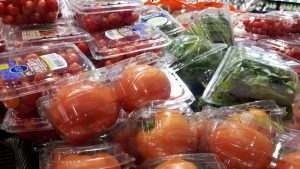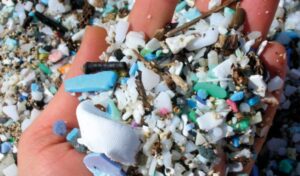- Regulatory Tools
- Circular Economy
- Government
- Government Policy
- Labelling
- Recycling
- Policy
- Strategy and Policy
- Take Action
- National
Some tea bags may shed billions of microplastics per cup
Fancy bagged gourmet teas may be causing you to drink millions of plastic microparticles with every cup.
Nathalie Tufenkji, a professor of chemical engineering at the Montreal university, found one of the silken bags in the tea she ordered from a coffee shop one morning. She suspected the plastic was breaking down in the hot water and sent out a graduate student, Laura Hernandez, to buy various brands.
Sure enough, Hernandez’s lab tests showed that when steeped in hot water, the tea bags released microplastic and even smaller nanoplastic particles — and not just the hundreds or thousands Tufenkji had been expecting.
“We were shocked when we saw billions of particles in a single cup of tea,” she said.
One cup from a single tea bag could contain 11.6 billion microplastic and 3.1 billion nanoplastic particles, the researchers estimated from their results, published Wednesday in the journal Environmental Science & Technology.
That may sound unappetizing, but is it a health risk?
The Tea and Herbal Association of Canada told CBC News in a statement that the materials used in the tea bags in the study, PET (polyethylene terephthalate, found in plastic drink bottles) and nylon (used in many food bags and pouches), have been deemed safe for use in contact with hot food and beverages. It added there is no evidence the microparticles pose a risk to human health.
But in general, there isn’t much known on the impact of microplastics on human health.
“There’s really no research. But this really points to the need to do those studies,” Tufenkji said. “Think of people who drink one or two or three cups of tea a day, every day.”
Collectively, Canadians drink about 10 billion cups of tea a year.
Tufenkji says the potential health risk isn’t the only reason to stick to paper tea bags and loose leaf tea.
“Personally, I would say avoid the plastic tea bags because it’s just another single-use plastic” — something many governments, including Canada’s, are trying to reduce due to the impact on oceans and the challenges of recycling it.
Read the full and original article at CBCnews.ca



